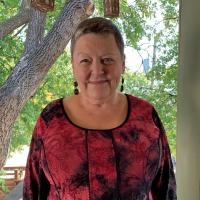Robert Bruinsma remembers the day his friend, Sam, told him he was going to die.
It was a few days before Christmas 2017, and Bruinsma was visiting Sam (not his real name) in the hospital. Sam told Bruinsma that his request for medical assistance in dying (MAID) had been approved and would be carried out on New Year’s Day.
A beloved father, educator and hockey coach, Sam had lived with cancer for 13 years. By early 2017, it had spread to his blood and spinal fluid. Because of a severely compromised immune system, Sam had recurring bouts of double pneumonia and sepsis that sent him to emergency hospital care, where he almost died several times.
After undergoing painful and aggressive experimental treatments, Sam’s oncologist informed him that the treatments were unsuccessful. He had three months to live.
Soon after, Sam was again admitted to hospital with double pneumonia.
“I remember him saying, ‘I’m looking forward to being rid of this body,’” Bruinsma recalled in a 2018 column he wrote for Christian Courier.
During the last few years of Sam’s illness and hospitalization, the two friends spoke frequently about end-of-life issues.
“We both agreed that life was a precious gift from God; but, as Christians, we did not believe that biological existence was to be idolized,” Bruinsma wrote. “Both of us expressed fear of dying because of the needless suffering it often causes, but we were not afraid of death, because it has been swallowed up in Christ’s victory on the cross and nullified by the Easter promise of resurrection.”
While Bruinsma mourned the death of his friend, he believed Sam’s decision was a courageous one, and a testament to faith in resurrection through Christ.
“Life is precious and a gift of God,” Bruinsma said in a phone interview last month. “At the same time, we’re human beings with agency and responsibility.”
Prior to his friend’s death, Bruinsma had contemplated the value of Canada offering assisted dying as a form of end-of-life care. People receive life-altering medical interventions at all stages of their lives. Why, Bruinsma reasoned, should the end of life be different?
“It didn’t take me very long to come to the conclusion that something like MAID is worthy of consideration,” he said, adding later: “There’s no question in my mind that [MAID] is going to be a concern for Christians in a more intentional way sooner rather than later.”
Who qualifies?
MAID first became legal in June 2016. The law made provision for medically assisted death for “competent adults” who suffer from “a grievous and irremediable medical condition that causes them enduring and intolerable suffering” and “whose deaths are reasonably foreseeable.”
In March 2021, the law was amended to permit MAID in additional situations, including for people with disabilities and chronic diseases who are “in an advanced state of irreversible decline in capability” and have “intolerable physical or psychological suffering that cannot be alleviated under conditions the person considers acceptable.”
According to Health Canada, more than 31,000 Canadians received assistance in dying between 2016 and 2021. In 2021, the total number of MAID provisions increased by 32 per cent over the previous years, mirroring comparable increases in previous years.
The legislation is set to change again next year. Starting on March 17, 2024, persons suffering solely from a mental illness and who meet all other eligibility criteria will be able to access MAID in Canada. The change was supposed to happen this past March, but the government delayed it by a year.
Last February, Ed Fast, Conservative MP for Abbotsford, introduced a bill that would prevent the expansion of MAID eligibility to include mental illness. A final vote on the bill could come in October.
The Evangelical Fellowship of Canada (EFC), of which Mennonite Church Canada is an affiliate, is urging Canadian Christians to support the bill. “The EFC has consistently opposed the legalization of euthanasia and assisted suicide,” Julia Beazley, the EFC’s director of public policy, said in an email. “These must not be seen as the solution to suffering and despair. We’ve also consistently pushed for the strongest possible safeguards and limitations on MAID.”
Three in five Canadians (61 per cent) say they support the current MAID law in Canada, according to polling by Angus Reid Institute and Cardus, a nonpartisan Christian think tank based in Hamilton, Ontario.
Data released in February by Angus Reid and Cardus shows that the same support is not evident for the proposed changes to MAID legislation. Just three in 10 Canadians (31 per cent) say they support the concept of offering MAID for irremediable mental illness. Half (51 per cent) oppose this idea.
“That is a really important finding as Parliament looks at this expansion—to recognize the discomfort Canadians feel about it,” said Rebecca Vachon, program director for health at Cardus.
Cardus does not consider MAID a good policy, Vachon said, but since it is the law, the think tank is committed to addressing its concerns through constructive engagement with public policy.
For Vachon, the topic of MAID begs the question: “How do we as individuals and within our society’s institutions . . . provide the support that we all need to flourish, rather than providing an end to someone’s life?”
Vulnerability and dependence are part of what it means to be created by God, and people will encounter times in their lives when those things are magnified, she said. “I think the Christian response to that . . . is to love and to provide that love to others, as well as accept that love when we ourselves are experiencing vulnerability and dependency.
“It really is vulnerability and dependency that creates relationships,” she added. “It’s at the basis of what it means to be a community.”
Vachon uses the word “euthanasia” when talking about MAID because she believes the term “medical assistance in dying” obscures the reality.
“Of course, everyone wants to have assistance as they’re facing suffering and as they’re facing death, but what that assistance could include is care that doesn’t involve actively ending someone’s life.”
Disability and belonging

Like Vachon, Rhonda Wiebe is concerned about MAID.
The Winnipeg resident has lived with disability since she was 13 years old. Now 63, she has multiple disabilities and has undergone 27 surgeries. For decades, she has been a disability rights advocate.
Palliative care is not included in the Canada Health Act, Wiebe noted, and thus, Canadians have no right to it. It is Wiebe’s belief that until every Canadian who wants palliative care has access to it, Canada has no business offering MAID.
Wiebe isn’t opposed to allowing MAID as it was initially legislated—for mentally competent adults whose deaths are reasonably foreseeable. She is concerned, however, that in an under-resourced medical system, MAID is becoming a go-to solution.
“I predict using MAID as a panacea for our very broken healthcare system will be a disaster, and the people who will feel it the most are people with disabilities,” she said.
Wiebe pointed to a December 2022 CBC report that told the story of Jacquie Holyoak, a 59-year-old Ontario woman who was considering accessing MAID due to the debilitating pain of living with fibromyalgia. It’s a choice, however, she might not contemplate if her disability benefits didn’t leave her struggling to make ends meet.
“I’m just really exhausted … I need someone to help me, and I’ve been asking everywhere,” Holyoak told CBC. “And unless you have money, you’re just not going to get the help.”
For Wiebe, stories like these are examples of ongoing ableism in a society that can sometimes send the message that the solution to disability is death.
“I would argue the ‘problem’ of disability lies more in external social, physical, attitudinal and architectural barriers,” Wiebe wrote in a column published by the Winnipeg Free Press.
Wiebe gave the example of her sight. She is legally blind, so if you give her something in 12-point font, she can’t read it. However, if you give her a document in large print, she no longer has a problem.
Similarly, Wiebe uses a wheelchair at times. She is “disabled” by the environment around her—stairs, curbs with no access cuts and doors that don’t open automatically. But when changes are made externally, she becomes self-reliant.
“The problem doesn’t lie inside us,” she said in an interview. “It lies in the barriers in front of us.”
Society’s general attitude toward people with disabilities “tells me that I’m not an equal citizen in Canada,” Wiebe added. “You get the message every day that you’re not wanted on the voyage.”
Wiebe continues to advocate for herself and others with disabilities, which includes critique of MAID legislation.
“When we face the social message that it’s better to be dead than disabled, the option of assisted suicide and euthanasia . . . puts our very lives at risk,” Wiebe wrote in the Free Press.
She hopes Christians consider this when they’re thinking about the implications of MAID.
“What I do value about [Christians] is that some of them have a sense of fairness and justice,” Wiebe said. “What they need to get on their maps is that people with disabilities need justice too, and we belong. We belong.”
Accompaniment

When a resident in the long-term care home where he was chaplain approached Tim De Jonge in 2018 about supporting him as he sought MAID, De Jonge was prepared.
After MAID was legalized, De Jonge, who is an ordained minister in the Christian Reformed Church, spent time reflecting on what he would do if such a request came his way. He concluded that he wanted to support people nearing the end of their lives, whether they choose MAID or not.
The care home resident had end-stage liver disease and wasn’t eligible for a transplant. He had almost no friends or family. De Jonge provided spiritual and emotional support to him, helped plan his funeral and was present for his death.
“It felt significant and meaningful to support someone who had had a pretty tough life … [and] to provide ritual and meaning for him,” De Jonge said, noting the man was in physical pain. “I also had empathy with his decision to seek MAID, knowing that he was dying and knowing that his death [without MAID] likely would be uncomfortable.”
De Jonge, who is now a spiritual health practitioner at Kingston General Hospital in Kingston, Ontario, has been present three times MAID has been administered. He’s also counselled numerous patients as they have wrestled with whether God would approve if they chose MAID.
“I always tell them that only they can discern that as an individual,” De Jonge said. “I can’t speak for God or give them the peace they’re looking for.” He knows some patients whose discernment led to MAID, and others whose discernment did not. “I can see that it’s a humane option in the face of suffering. I don’t know if I would choose it, but I think it’s a defensible option for sincere Christians.”

Paul Bergen, manager of the spiritual care team at the University of Alberta Hospital in Edmonton, agrees.
“I don’t feel any need to judge somebody else when they’re choosing [MAID],” said Bergen, who has served as a chaplain for more than 20 years. He was a Mennonite pastor before that. “My role as a chaplain is certainly to help them think through [their options] as thoroughly as they can [and help discern] how this does or does not reflect values they have. But the choices they make about how they want to move forward are their choices.”
Bergen often thinks about a patient he worked with many years ago, before MAID was legalized. The man had spinal cancer that caused him excruciating pain. He had been a drug addict and his medical team was going to extraordinary lengths to remediate his pain because his previous experience with drugs rendered typical doses of pain medication ineffective.
“Whenever questions come up—is MAID good, is it ethical—I always think about this guy,” Bergen said. “Would I have wanted to say to this patient and his family ‘we have this option [MAID]?’ Yes, absolutely. That would have been ideal for this individual. . . .”
“There are people that we can do nothing for, and MAID really and truly is the only compassionate option to remediate the suffering.”
Both Bergen and De Jonge expressed concerns that the medical system in Canada isn’t doing enough to provide health supports such as palliative care and home care, and that people are choosing death when they might not if they had better supports.
De Jonge is also concerned that there’s a cultural message that people are better off dead than disabled, and that MAID perpetuates this thinking.
“I worry we’re not doing enough to help people see that they’re not a burden,” he said.
Conversation with God
MAID has shifted how many Canadians think about dying, said Jane Kuepfer, who is the Schlegel Specialist in Spirituality and Aging at Conrad Grebel University College in Waterloo, Ontario. In the past, death was something people waited for. Now, they can plan for it.
“In some ways, the reality of MAID in our society can encourage all of us to be more intentional about thinking about death and what matters to us in death,” said Kuepfer, who has extensive experience as a spiritual caregiver in long-term care homes and in the community. She is a registered psychotherapist, a spiritual director and an ordained minister in the Mennonite church.
Christians are called to be a compassionate presence in society and to help people who are suffering, Kuepfer added.
“MAID is a wake-up call to us to make sure we are really as a community caring for people who are ill and who are suffering,” she said. “I would hate to see anybody consider MAID because they’re afraid that there won’t be enough support for them to go through what they see in their future.”
“For people of faith, living and dying is always a conversation with God,” Kuepfer added. “A conversation seeking meaning, seeking consolation, seeking relationship.”
De Jonge hopes Christians educate themselves on a topic that is highly nuanced.
“It’s important for people to think about what it means to value life as God’s created it,” he said, “and what it means also to take seriously people’s suffering.”
This article is a collaboration between Canadian Mennonite and Christian Courier.
Related articles:
Choosing death
Can we talk about MAID?




Comments
Thank you for this excellent, nuanced article.
Clearly, patients have always made private, off-the-books decisions with the help and hindrance of doctors and loved ones alike. Those conversations must always have been deeply complex and difficult.
Since MAID is now legal in Canada, it has to be considered alongside those provisions for people who are suffering.
I considered carefully, and consulted with friends before signing this petition against the expansion of MAID to situations where mental health/distress is the sole factor:
https://petitions.ourcommons.ca/en/Petition/Details?Petition=e-4550
I agree that MAID should not be contemplated without necessary expansion of full care for these conditions for which relief and treatment exist.
No one wants to suffer, and no one wants to permit or promote suffering that can be relieved. The alleviation of suffering alongside the protection of life should be a primary purpose for our institutions and social organizing. If conditions are treatable, the absence of that treatment is the problem that legislative efforts ought to be focused on amending.
In the meantime, in those situations without effective treatment, let us journey with and support with prayer and presence those who struggle to live, including in their decisions about the end of life.
Add new comment
Canadian Mennonite invites comments and encourages constructive discussion about our content. Actual full names (first and last) are required. Comments are moderated and may be edited. They will not appear online until approved and will be posted during business hours. Some comments may be reproduced in print.